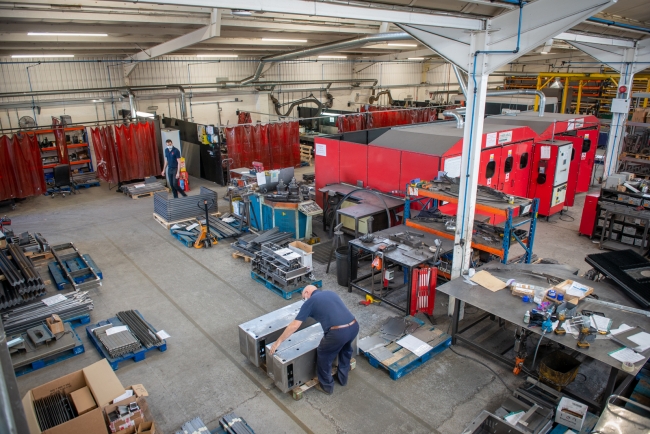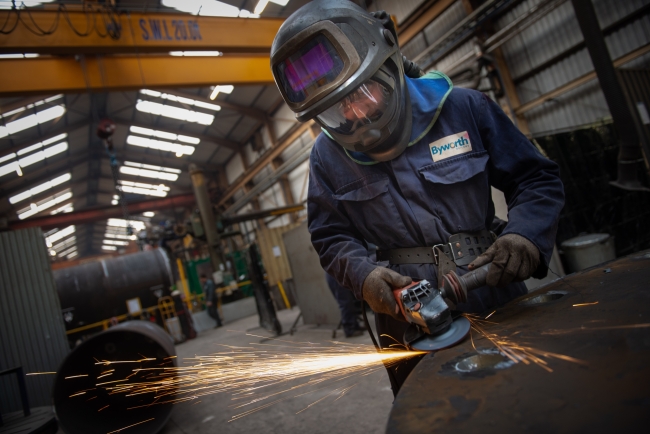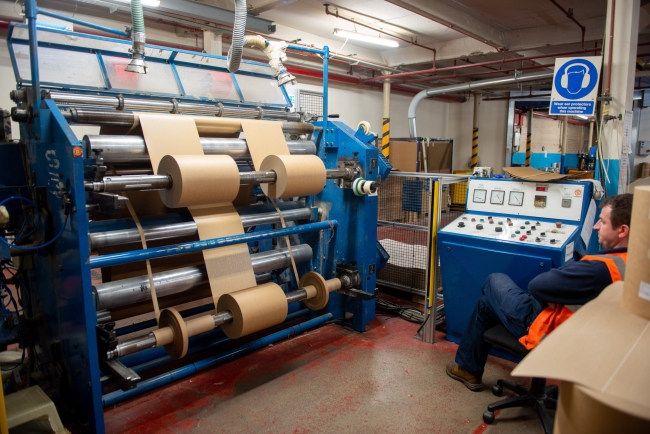4 minute read - 26th October 2022
Opinion: The road ahead for British manufacturing – five fundamental shifts for 2023
The recent years of constant upheaval, from Brexit and Covid to today’s energy crisis, have put huge strains on British manufacturers – who continue to demonstrate great resilience, innovation and agility.
Made in Britain CEO John Pearce shares his thoughts on the road ahead and what we can expect in 2023.
Successful, profitable manufacturing requires a subtle blend of raw materials, skilled people, energy and investment on the one hand, working in harmony with sales, delivery and product support on the other. If there were just one word to describe what everyone involved in these complex chains of supply and demand needs most of all this year, it is without doubt: stability.
Focus from government
In these chaotic times, our members at Made in Britain expect to see our government do everything possible to minimise all obstacles to the core operation of their business. The recently announced intervention in the commercial energy market is welcome, but a review in six months is too short a time period to provide stability. Furthermore, complications remain for many manufacturers trading with Europe while the issue of seasonal migration for workers is not settled.
At Made in Britain, we want to see a proper strategy for manufacturing within the Sunak administration’s growth plan for the economy. The needs of our sector touch many areas of public policy. Manufacturers in the UK need better access to investment finance (manufacturers in several comparable economies have easier access); simplifications to the planning system to help businesses grow in their localities; and a focus on education and apprenticeships to nurture the future workforce.

Manufacturing at Made in Britain member Furnitubes / Picture: Made in Britain
Sustainability at the centre
A particular focus needs to be put on the green transition and its impacts on the competitiveness of our industries. The justified anxieties of farmers over the possible influx of meat products produced with lower environmental standards as a result of new trade deals, show the importance of reciprocity across markets in the UK for local manufacturers and importers. The outcome has to be of measurable net benefit. Made in Britain has launched a series of sustainability webinars as well as a Green Growth programme, based around an assessment specifically produced for manufacturers.
Simply outsourcing the dirty parts of manufacturing processes to other countries will neither help British industry nor the environmental goals of a cleaner planet. We think that special fiscal measures could be introduced to reward green investing, helping to accelerate the green transformation of businesses of all sizes to a more circular, waste-zero economic model.

Manufacturing at Made in Britain member Byworth Boilers / Picture: Made in Britain
Tidying up procurement processes
The British government itself has huge purchasing power in the economy and we want to see more strategic thinking to encourage more local supply to the public sector. Supplying Whitehall departments and public bodies can be extremely time consuming, with the expense and onerous form-filling discouraging many SMEs from even considering these contracts. A single-entry point business registration for SMEs would be easier and quicker for everyone.
The speedy procurement measures taken during the imposed stress-test of the COVID crisis show that the government can do things differently with enough impetus. We would like to see the processes of public procurement streamlined and a ‘one-stop shop’ developed to help our small and medium size manufacturers bid for infrastructure and public sector contracts.

Manufacturing at Made in Britain member Packaging Products / Picture: Made in Britain
Prioritising British manufacturers
The government has moved their British-made procurement target from five% up to 50% and we want to help them move that needle even further with proximity and quality our absolute priorities. We want to see the government assess the total product miles across all public procurement to encourage British tax paid pounds to be paid to local British suppliers and manufacturers.
We know that British consumers want to buy more British goods, but confusion over provenance can be an obstacle. Made in Britain research has found four in ten consumers say they can’t tell if a product is made in this country or not. When asked about the car we drive, for instance, we tend to know the country that owns the brand but not where the model was built.
Promoting our provenance
The Made in Britain ‘Buying British’ survey shows that 80% of consumers would like to buy more domestically-produced products. To cut through the confusion around product origin, manufacturers and government should make it as easy as possible for consumers and businesses to identify and buy British. The Made in Britain mark, displayed on members’ products and packaging, certifies a product’s place of origin while also recognising the producer’s ethical and sustainable business practices.
Since the Made in Britain initiative was born a decade ago, as a marketing initiative backed by a few hundred like-minded manufacturers, it has evolved into an influential trade association of close to 2,000 members. We all expect the organisation to continue growing and for the mark to earn even more trust amongst businesses and consumers.

Made in Britain CEO, John Pearce / Picture: Made in Britain